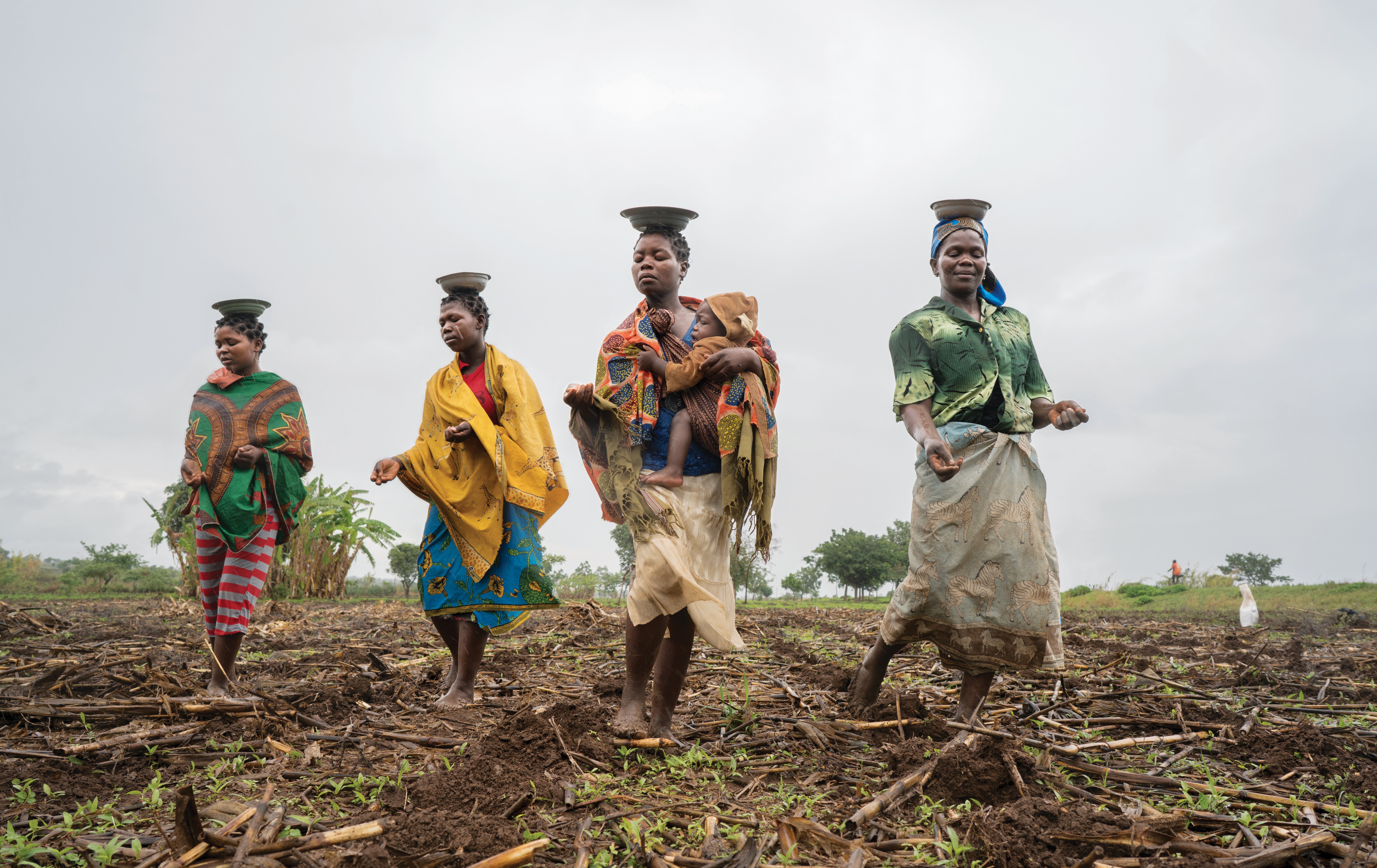Seed of drought-tolerant maize developed through long-running global and local partnerships in Africa is improving nutrition and food security in northern Uganda, a region beset by conflicts and unpredictable rainfall.
The International Maize and Wheat Improvement Center (CIMMYT) has been working with Uganda’s National Agricultural Research Organization (NARO) and local seed companies to develop and disseminate maize seed of improved stress-tolerant varieties. Under the Drought Tolerant Maize for Africa (DTMA) and the Stress Tolerant Maize for Africa (STMA) projects, farmers are now using varieties such as the UH5051 hybrid, known locally as Gagawala, meaning “get rich.”
For two decades, most of the population in northern Uganda has lived in internally displaced people’s camps and depended on food aid and other relief emergencies for their livelihoods due to the insurgency by the Lord’s Resistance Army (LRA).
Gulu, one of the affected districts, has been on a path to recovery for the past few years. With the prevailing peace, Geoffrey Ochieng’ and his wife can now safely till their 4.5 acres of land to grow maize and other staples. They are able to feed their family and sell produce to meet other household needs.
However, farmers in this region, bordering South Sudan, are facing more erratic rains and the uncertain onset of rainfall. Thanks to new drought-tolerant and disease-resistant maize varieties, the Ochieng’ family can adapt to this variable climate and secure a good maize harvest even in unreliable seasons.
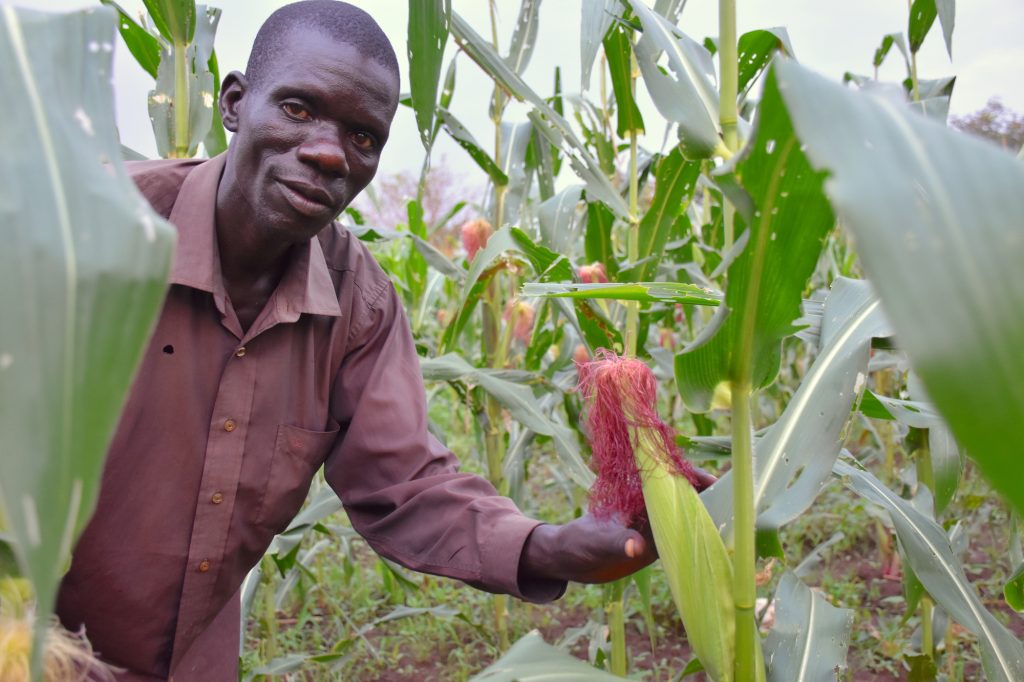
Tolerance is key
“The popularity of this drought-tolerant variety among the farmers has been growing thanks to its good yield and reliability even with poor rains and its resistance to common foliar diseases like northern corn leaf blight and gray leaf spot, plus good resistance to the maize streak virus,” explained Daniel Bomet, a NARO maize breeder. “Maturing in slightly over four months, Gagawala can produce two to three maize cobs, which appeals to farmers.”
Ochieng’ has been planting UH5051 maize since 2015. Before adopting the new hybrid, Ochieng’ was growing Longe 5, a popular open-pollinated variety that is less productive and not very disease-resistant.
“What I like about UH5051 is that even with low moisture stress, it will grow and I will harvest something,” Ochieng’ said. Under optimal conditions, he harvests about 1.2 metric tons of maize grain on one acre of UH5051 hybrid.
With the old Longe 5 variety, he would only harvest 700 kg. “If the rains were delayed or it didn’t rain a lot, I would be lucky to get 400 kg per acre with the Longe 5, while I get twice as much with the hybrid,” Ochieng’ explained.
Thanks to this tolerant maize variety, he can pay his children’s school fees and provide some surplus grain to his relatives.
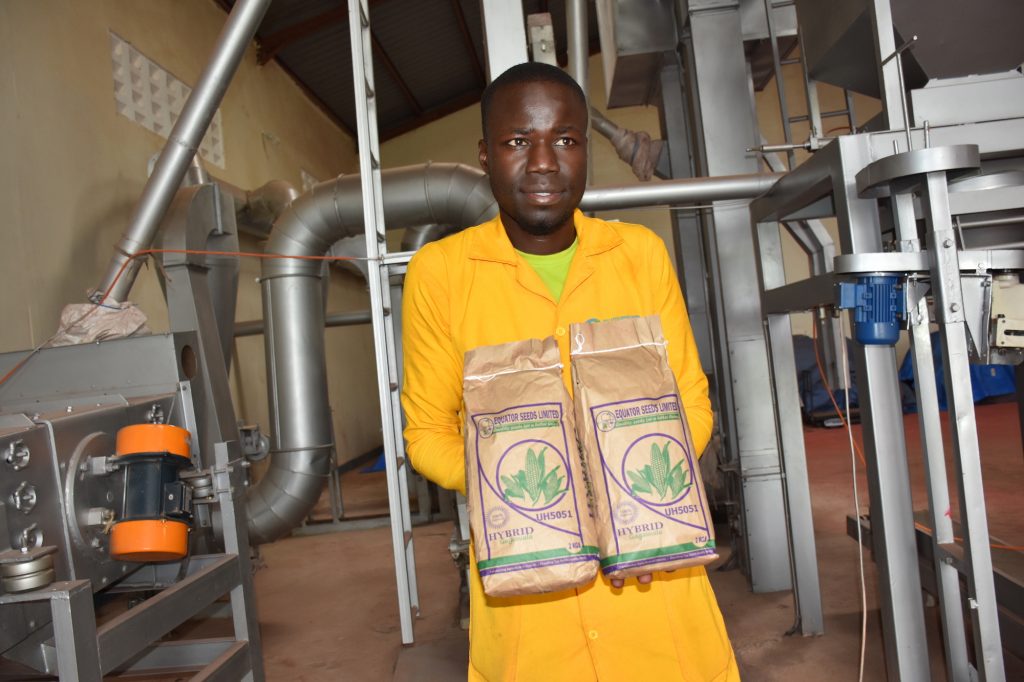
Out with the old, in with the new
“One key strategy to improve our farmers’ livelihoods in northern Uganda is to gradually replace old varieties with new varieties that can better cope with the changing climate and problematic pests and diseases,” said Godfrey Asea, the director of the National Crops Resources Research Institute (NaCRRI) at NARO. “Longe 5 for instance, has been marketed for over 14 years. It has done its part and it needs to give way to new improved varieties like UH5051.”
The Gulu-based company Equator Seeds has been at the core of the agricultural transformation in northern Uganda. From 70 metrics tons of seed produced when it started operations in 2012, the company reached an annual capacity of about 7,000 to 10,000 metric tons of certified seed of different crops in 2018. Working with dedicated out-growers such as Anthony Okello, who has a 40-acre piece of land, and 51 farmer cooperatives comprising smallholder farmers, Equator Seeds produces seed of open-pollinated hybrid maize and other crops, which reaches farmers through a network of 380 agro-dealers.
“80% of farmers in northern Uganda still use farm-saved or recycled seed, which we consider to be our biggest competitor,” Tonny Okello, CEO of Equator Seeds remarked. “Currently, about 60% of our sales are in maize seed. This share should increase to 70% by 2021. We plan to recruit more agro-dealers, establish more demonstration farms, mostly for the hybrids, to encourage more farmers to adopt our high yielding resilient varieties.”
The two-decade unrest discouraged seed companies from venturing into northern Uganda but now they see its huge potential. “We have received tremendous support from the government, non-governmental organizations, UN and humanitarian agencies for buying seed from us and distributing it to farmers in northern Uganda and South Sudan, to aid their recovery,” Okello said.
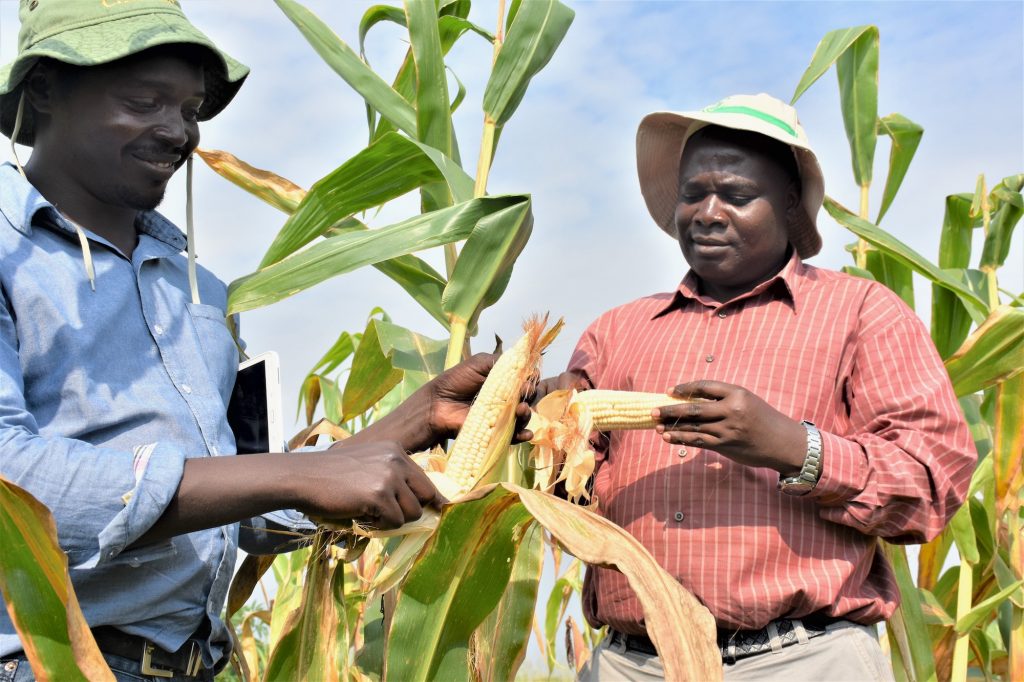
Social impact
The Ugandan seed sector is dynamic thanks to efficient public-private partnerships. While NARO develops and tests new parental lines and hybrids in their research facilities, they have now ventured into seed production and processing at their 2,000-acre Kigumba Farm in western Uganda through NARO Holdings, their commercial arm.
“Because the demand for improved seed is not always met, NARO Holdings started producing certified seed, but the major focus is on production of early generation seed, which is often a bottleneck for the seed sector,” Asea said.
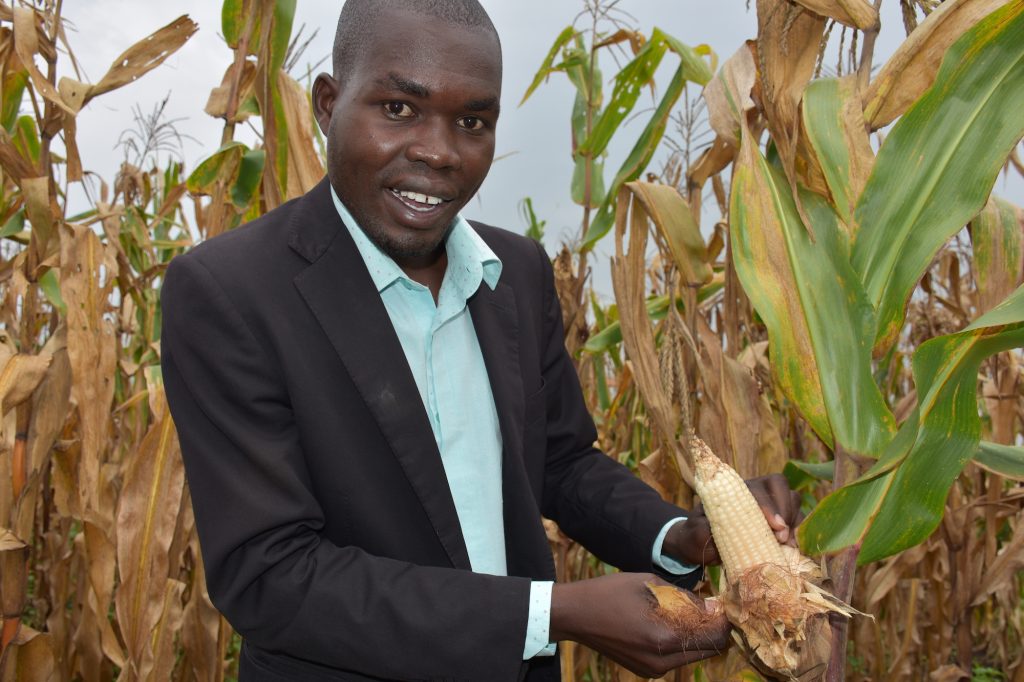
Another innovative collaboration has been to work with the Uganda Prisons Service (UPS) establishments to produce maize seed. “When we started this collaboration with UPS, we knew they had some comparative advantages such as vast farmland, ready labor, mechanization equipment and good isolation, which are important for high-quality hybrid maize seed production,” Asea explained. The UPS facility in Lugore, Gulu, which has 978 hectares of land, produces foundation seed of UH5051.
“Prisons offer a big potential to support the growing seed industry,” he said. “Together with CIMMYT, we should build further the capacity of UPS to produce foundation and certified seeds. It provides much-needed income for the institutions. The inmates, in addition to being remunerated for farm labor, are engaged in positive outdoor impactful activities. This skill is helpful for their future reintegration in the society.”
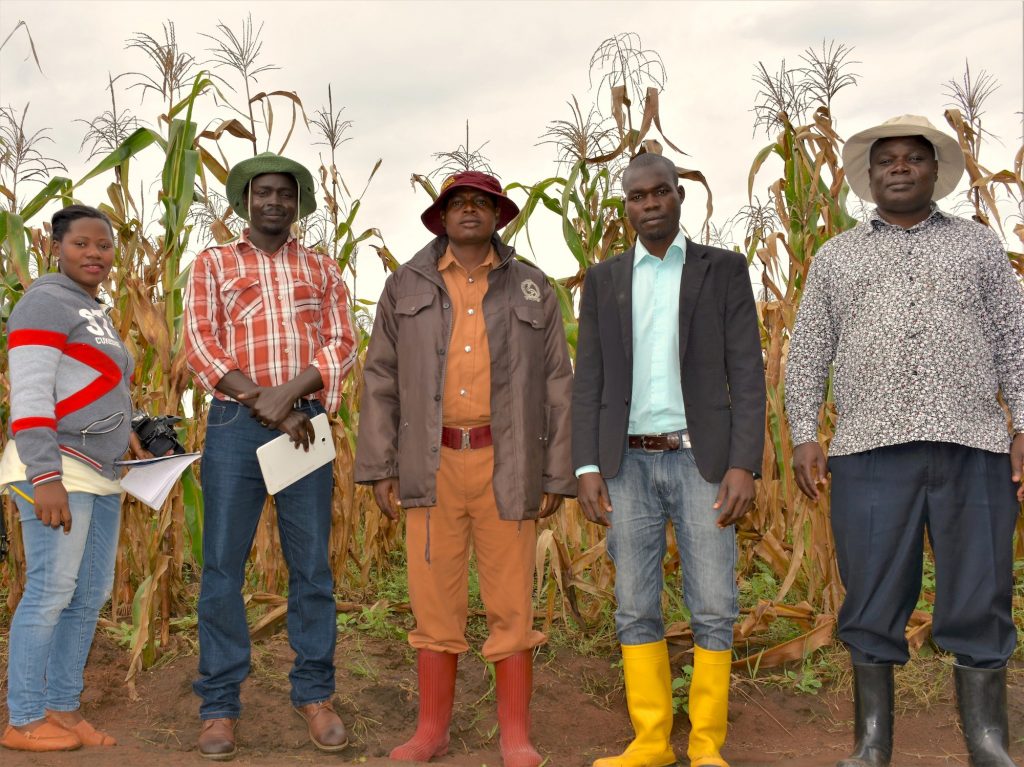
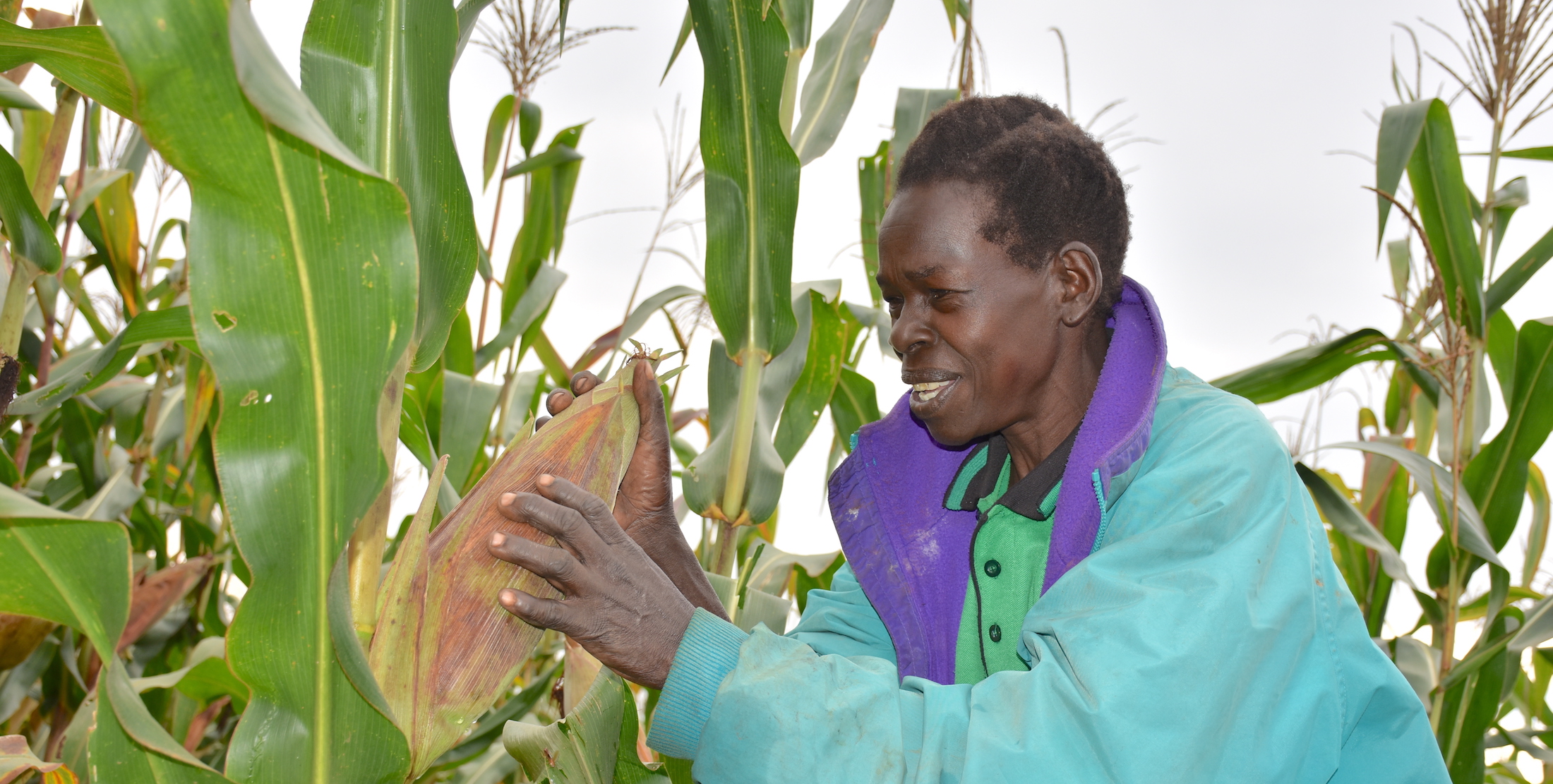
 Capacity development
Capacity development 